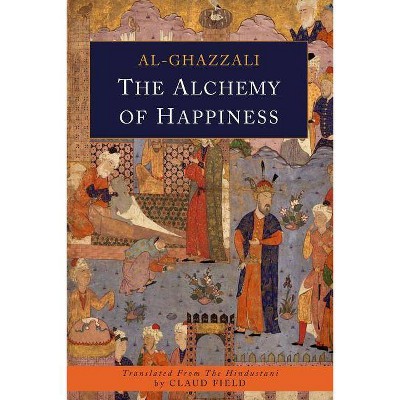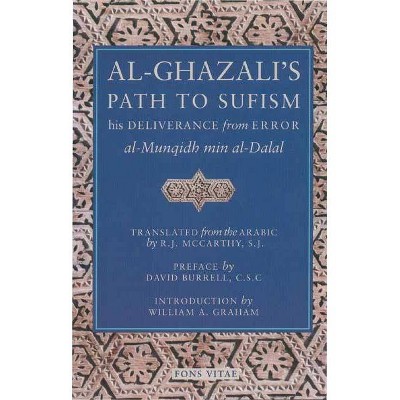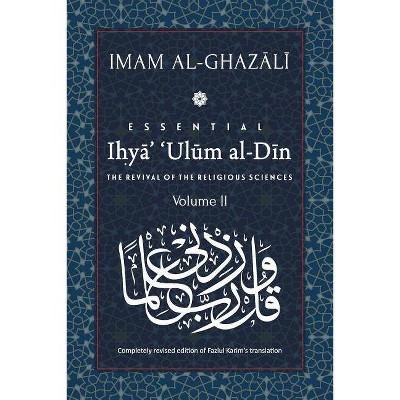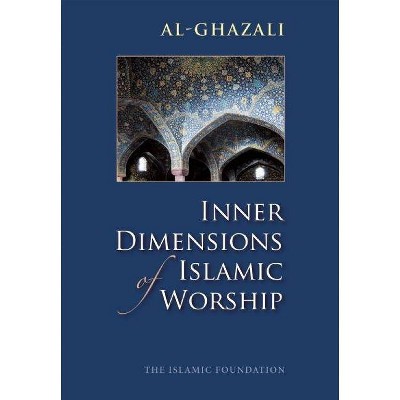Al-Ghazali on the Condemnation of Pride and Self-Admiration - (Islamic Texts Society's Al-Ghazali) by Abu Hamid Al-Ghazali (Paperback)

Similar Products
Products of same category from the store
AllProduct info
<p/><br></br><p><b> Book Synopsis </b></p></br></br><p><em>The Condemnation of Pride and Self-Admiration</em> is the twenty-ninth chapter of <em>The Revival of the Religious Sciences</em>, a monumental work of classical Islam written by the theologian-mystic Abu Hamid Muhammad al-Ghazali. Perhaps the most important chapter in the whole of <em>Revival</em>, <em>The Condemnation of Pride and Self-Admiration</em> delves into the fundamental spiritual ailments and major impediments of the soul, namely pride and self-admiration. In Part One, Ghazali focuses on pride, firstly by showing how the Qur'an condemns it, then by demonstrating what pride is and what its symptoms are, how pride manifests outwardly, as well as the seven causes of pride, the root cause being self-admiration. In seeking ways to cure the soul of pride, Ghazali presents the virtue of humility as the spiritual virtue par excellence; he offers examples of true humility, of false humility, and the manner by which the seven causes of pride can be uprooted. In Part Two, Ghazali hones in on the root cause of pride: self-admiration. As with pride, Ghazali defines self-admiration, shows the various ways it manifests inwardly, how it causes negligence, delusion and complacency, how each of these can be remedied.</p><p>Just as humility is recognised as the virtue par excellence, pride is recognised as the vice par excellence; and this by all religions. <em>The Condemnation of Pride and Self-Admiration</em> is therefore a genuine contribution to the field of virtue ethics and will be of interest to all those engaged in the religious and spiritual life.<i><br></i></p><p/><br></br><p><b> Review Quotes </b></p></br></br><br><i>...the series as a whole, </i> [<i>is</i>] <i>a significant contribution to our understanding of this key figure in Islamic intellectual thought.</i>--Oliver Leaman "BRISMES Bulletin"<br><br><i>Mohammed Rustom has produced an attentive translation that is highly readable. ...Given the renewed interest in virtue ethics in recent decades and a number of recent studies on Islamic ethics, </i>Al-Ghazali on the Condemnation of Pride and Self-Admiration <i>is a welcome contribution of a primary text related to this burgeoning field.</i><br>--Jawad Qureshi "Journal of Islamic and Muslim Studies"<br><br><i>Al-Ghazali's moral psychology forms the most lasting part of his legacy: his piercing yet thoroughly humane observations on our many foibles, in particular, have lost none of their currency. Anybody willing to examine how the vice of pride can sour the human heart and warp not only our relations with one another, but our very perception of reality, will stand to benefit from Mohammed Rustom's excellent English translation.</i>--Taneli Kukkonen<br><br><i>In his vivid and lively English translation of the twenty-ninth book of the</i> Revival<i>, Mohammed Rustom has gone to great pains to accurately convey the highly nuanced nature of the original Arabic, thereby bringing al-Ghazali's thought to life for the contemporary reader.</i>--Steven Styer<br><br><i>Mohammed Rustom's annotated translation of one of the most important parts of al-Ghazali's hugely influential </i>Revival<i> admirably combines lucidity with scholarly accuracy, and is a pleasure to read. I recommend it without hesitation to anyone interested in al-Ghazali, Sufism, or virtue ethics in Islam.</i>--Dr Ayman Shihadeh<br><p/><br></br><p><b> About the Author </b></p></br></br><p>Mohammed Rustom is Associate Professor of Islamic Studies at Carleton University. He is the author of the award-winning book <em>The Triumph of Mercy: Philosophy and Scripture in Mulla Sadra</em> (2012) and co-editor of <em>The Study Quran: A New Translation and Commentary</em> (2015).<br> </p>
Price History
Price Archive shows prices from various stores, lets you see history and find the cheapest. There is no actual sale on the website. For all support, inquiry and suggestion messages communication@pricearchive.us




















